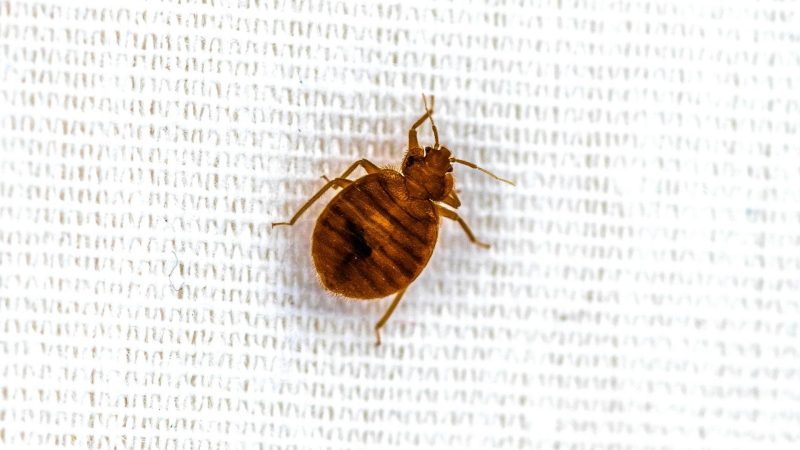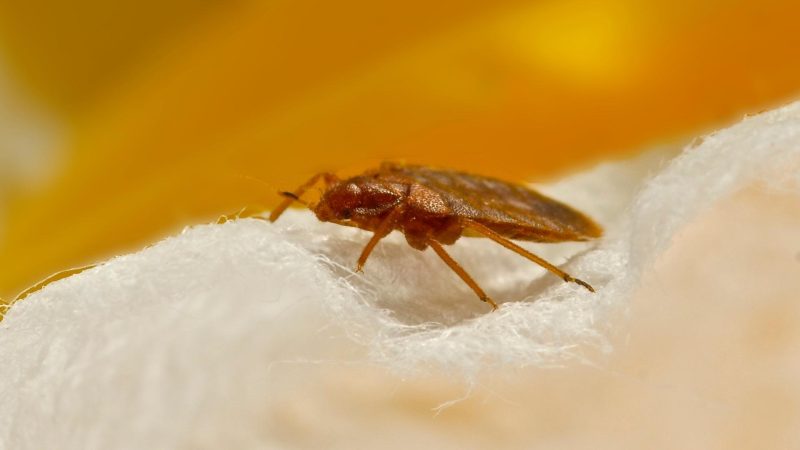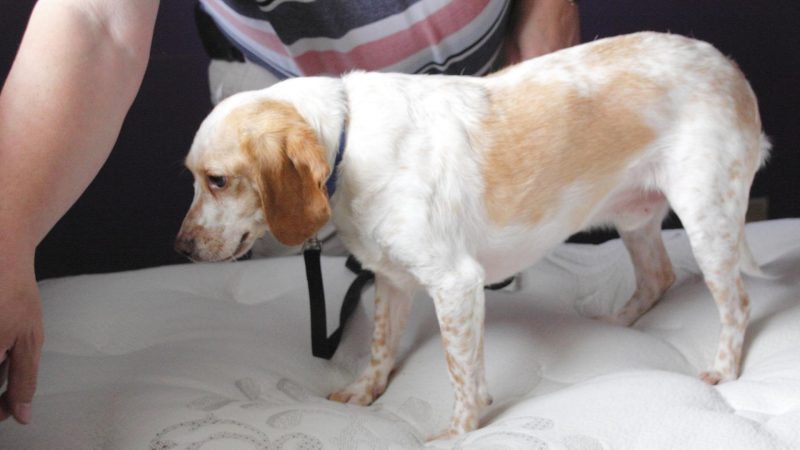Sleep refreshes our minds and rejuvenates our weary souls. It gives recovery and respite to our exhausted bodies. But what if you found bed bug bites all over your body upon waking up? Well, it isn’t a good night after all!
Where do bed bugs come from? Bed bugs may come into your house through the clothes, used mattresses, luggage, furniture, and other things that are brought inside your abode from the outside. They are adept and skilled hitchhikers, so they may easily cling to upholstered surfaces, soft fabrics, and pieces of clothing, especially when you sit and stay for a long time in public places such as hotels, restaurants, train and bus seats, libraries, and others.
Since you already have an idea of where bed bugs came from, let us add interesting details to that newly acquired knowledge by orienting ourselves with the causes of their infestation, how they behave and spread, and the instant ways of getting rid of them.
What Causes Bed Bugs in the First Place?

Travel is considered to be the most common cause of bed bug infestation. When you constantly visit and stay in public places, like city or school libraries, hotels, motels, hospitals, restaurants, public buses, trains, and other modes of public transportation, a bed bug may easily cling to your pieces of clothing, backpacks, coats, purses or luggage.
Their hitchhiking abilities are generally not noticeable or apparent to a victim due to their miniature and small sizes. This means that you may not have any idea that an insect pest has already attached to you and your belongings.
Furthermore, bed bugs have been in existence for a thousand years already. It is said that their name was first mentioned in Germany and was accidentally introduced to London through the transport of piles of wood in the said place. As years go by, it became prevalent in the rest of the countries when it was widely distributed to the different parts of the world through constant travel and exposure to public places.
Why Do Bed Bugs Spread?
Once a bed bug is introduced inside your house or office, there is a big possibility that these insect pests will spread on the different parts of the above-stated places. They may transfer from one spot to another to look for a food source.
Additionally, they primarily feed on blood. So once they feel weak and hungry, they will start to search for humans to bite. The bites are typically discovered in the form of red, itchy, and macular spots on skin areas that are constantly exposed to infested beddings and blankets. This is why they are rarely found in beds, blankets, beddings, and other areas where people stay and rest. However, bed bugs may also feed on the blood of bats, birds, cats, and dogs.
Related: How Do Bed Bugs Spread From Location to Location?
How Bed Bugs Spread?
Bed bugs can spread from one place to another through crawling and hitchhiking. Their small bodies can fully cling to clothes, suitcases, bags, cloth jackets, furniture, and mattresses. This becomes their way of entry inside a building or establishment.
They also hide in areas near a bed or couch, cracks in walls, crevices in wood structures, headboards, box springs, and cabinets where clothes are kept. Other than that, they may also stay in the seams of chairs, electrical pipes, and receptacles, wall and ceiling junctions, drawer joints, back of curtains, and areas under wall decorations and wallpapers.
Related: How Are Bed Bugs Spread? | Essential Strategies for Prevention
How Do You Get Bed Bugs?
You can get bed bugs when you harbor these parasitic insects in the following places and things:
- Second-hand furniture. The previous owners of a house or office furniture may have had a bed bug infestation, and you might be the next victim if you bring these items into your home. Other than that, second-hand furniture may be readily available in an apartment or room you are planning to rent, and bed bugs may have already made a habitat out of it. To prevent a bed bug infestation, make sure to clean and sanitize the areas where these movables are placed.
- Public places. Bed bugs are common in places where numerous people meet and congregate. Good examples include libraries, restaurants, movie theaters, schools, hotels, motels, hostels, and hospitals. People go to these public places, so the risk of leaving bed bugs is highly possible.
- Luggage, suitcases, and bags. These things are a person’s travel companion, in most cases, making them a potential breeding site for bed bugs. Bags and luggage items are constantly left in hotels and public transportation compartments, which give opportunity for these parasitic bugs to cling and attach to their pockets and cloth surfaces. Thus, it is important to inspect and clean the bags before putting them inside your house.
- Public transportation. People travel using public modes of transportation like buses, trains, airplanes, and taxis. As they ride and leave the premises of these vehicles, they may leave or harbor bed bugs while sitting on them. If not removed before reaching their homes, they may spread and infest in your indoor spaces.
- Public vacuum devices. These vacuum appliances may have already been utilized in numerous homes and establishments, making them a center for bed bug infestation. If this equipment is not cleaned properly, the bed bugs that may have been stuck inside it may transfer to your place.
Related: Bed Bug Signs | Identifying and Treating Infestations
Do Bed Bugs Come From Peeing in the Bed?

There is no clear association between a person’s urine and bed bug infestation. These parasitic insects are greatly attracted to carbon dioxide, heat, and hormones of humans such as histamine. Although urine contains histamine, its level in the said substance is generally low. It will not attract bed bugs to go near it.
Can Bed Bugs Come From Plants?

Bed bugs can live in plants, but it is unusual for them to do that. Thus, it is uncommon for these insect pests to come from plants and potted flowers.
These bugs are usually harbored inside houses and establishments when affected clothes, furniture, mattresses, and suitcases are entered inside the said places. They are not pests of plants, so they will not spend their time staying on green foliage and vegetation.
Do Bed Bugs Come From Being Dirty?
Dirt, clutter, and unclean environments do not attract bed bugs. Therefore, It is reasonable to conclude that these bugs are not driven from dirt. They are mainly concerned with the presence of humans and animals, as their primary goal is to suck and feed on blood.
Moreover, they do not care if the place is clean or dirty as long as they can get their food source. However, cleaning the room, vacuuming the common areas, and washing the beddings and blankets are excellent methods of eradicating bed bugs.
Do Bed Bugs Come From an Old Mattress?
Bed bugs may come from an old mattress. It is common for second-hand bed paraphernalia to be infested with bed pests. So, introducing old mattresses inside your house may increase the risk of acquiring these parasitic insects.
These bed fixtures may have already been utilized and laid on by a lot of different people, so the chances of bed bugs clinging to them are high. However, even new mattresses can be a habitat of bed bugs if it is displayed in areas where these insects are prevalent.
Furthermore, bed bugs tend to live in areas that are near to their food source. Since humans spend most of their time in bed when sleeping or resting, these little insects will probably feast on areas around them, such as mattresses and bed covers. They want to be close to humans to suck blood, so it is not surprising to see them lurking in these places.
Related: Can Bed Bugs Live in Mattresses? | Risks, Signs, and Prevention Tips
Do Bed Bugs Come From Outdoors?

Bed bugs may come from the outdoors but not for too long. When they are thrown away outside or removed from their previous habitats, they will do their best to return to a house, office, or establishment. They will do this by clinging to a person’s clothes, luggage, and other personal belongings.
Other than that, bed bugs are attracted to heat, so they may not enjoy the cold and chilly atmosphere of an outdoor environment. Thus, these insects will exert effort in trying to go indoors.
Do Bed Bugs Come From Animals?

Bed bugs may come from animals when they utilize it as their mode of transportation. They may cling to a pet dog or cat to reach the indoor spaces of a house. This will enable them to be close to humans since they feed on the latter’s blood. However, bed bugs will not make these creatures their hosts.
Furthermore, a bed bug may also resort to an animal if a person’s blood is not readily available. They may consider the blood of cats, dogs, birds, bats, and rodents as an alternate food source.
Related: Bed Bugs on Animals | Control Measures from Infestations
What Kills Bed Bugs Instantly?
The following are the best products to use in killing bed bugs instantly:
This bed bug killer from the brand Ortho is one of the best choices when it comes to insect control. It contains powerful chemicals namely, Bifenthrin, Imidacloprid, and Piperonyl Butoxide. This chemical can effectively deter several insect pests such as bed bugs, bed bug eggs, pyrethroid-resistant bed bugs, fleas, and ticks.
No products found.
Moreover, it utilizes a convenient spray system and a comfort wand that enable users to get into hard-to-reach surfaces. It is commonly applied around mattresses, headboards, bed frames, mattress seams, and folds.
If you want to attain instant relief from bed bugs, then this might be the perfect candidate. This insect killer from the brand Harris can instantly kill bed bugs once it is sprayed on them.
No products found.
It can continue to exterminate bed pests for a long period, specifically up to sixteen weeks. It is also safe to use as it is odorless, Environmental Protection Agency (EPA) registered and made from a non-staining formula.
If you are looking for another product that can immediately kill bed bugs, then this foaming spray from the brand Raid is an excellent alternative. Its active ingredients include Metofluthrin, Clothianidin, and Piperonyl Butoxide that can be effective in killing bed bugs, their eggs, and bed bug species that are resistant to pyrethroid. Additionally, its foam formula can reach remote and inaccessible areas, while its killing effect may last for up to four weeks.
No products found.
Related: Top 6 Natural Bed Bug Sprays | Safe Solutions for Your Home!
Key Takeaways
Bed bugs may cling and attach to your clothes or personal belongings without you knowing it. They are very skilled in hitchhiking, so their presence may remain discreet and unnoticeable until you experience and acquire their itchy bites. To prevent them from entering your homes, it would be best to always inspect the things you bring inside your house and to regularly clean your surroundings.
List of Sources
How to Find Bed Bugs. United States Environmental Protection Agency.
Bed Bugs – What They Are and How to Control Them. (2021). New York State – Department of Health.
Merchant, M. Bed bugs: Do-it-yourself control options. Texas A&M AgriLife Extension.
- How to Get Rid of Copperheads | Practical Guide - August 27, 2023
- How to Get Rid of Corn Snakes | What Makes Them Aggressive? - August 27, 2023
- How to Get Rid of Alligators | Safety Measures and Removal Methods - July 16, 2023
